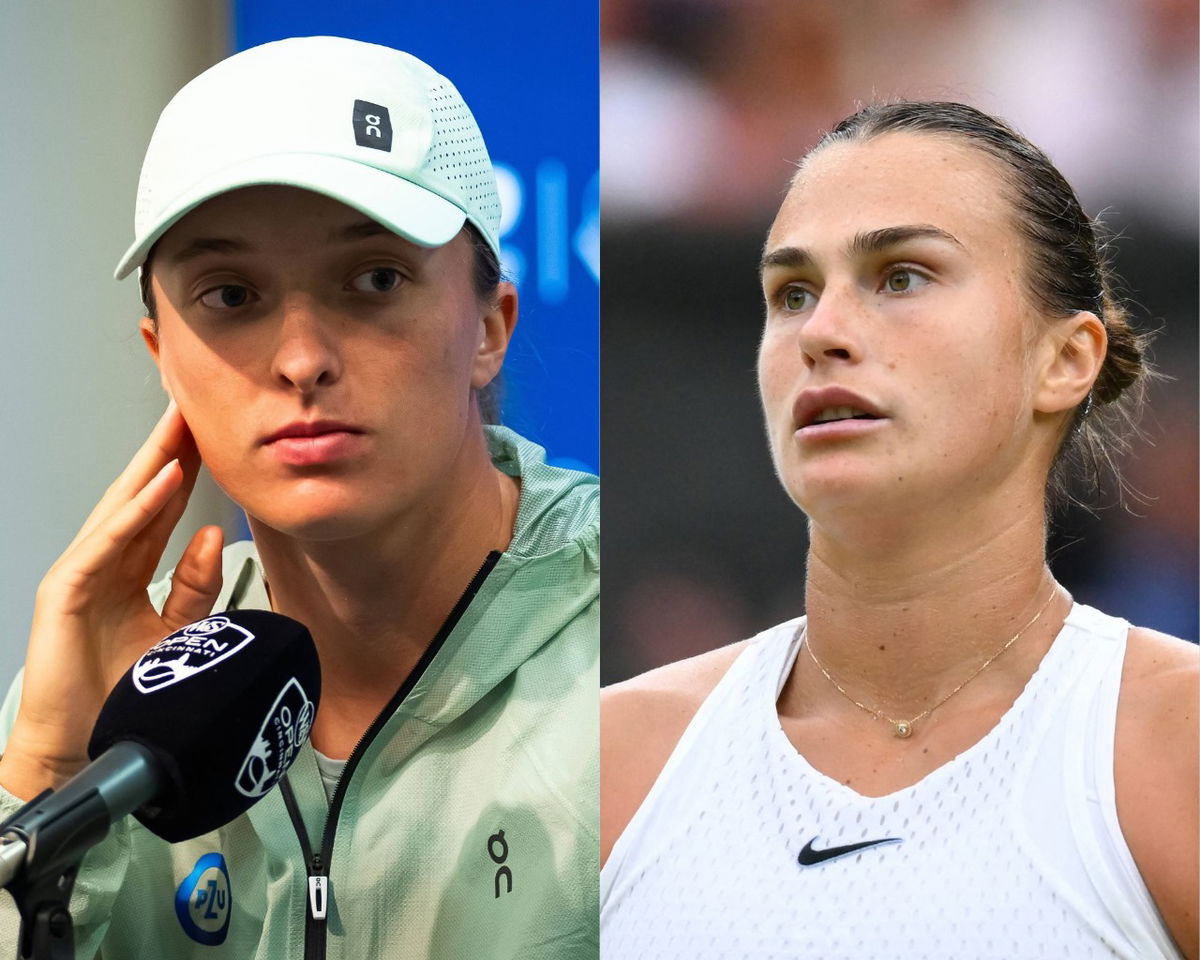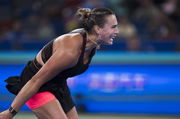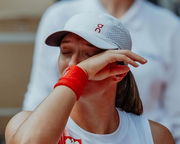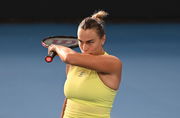
Imago
Image Credits – Imago

Imago
Image Credits – Imago
If you follow Aryna Sabalenka on any of her social media accounts, you would have noticed one thing that stands out for her– she shares everything. In her defense, she started doing it because she wanted to be connected with her fans, as she stated, “I look really aggressive on court… I need to show people who Aryna is.” But, of course, it can sometimes fire back.
Watch What’s Trending Now!
The weight of professional athletes is also increased by how their fans treat them, at times, which can be ruthless. Just like Sabalenka’s opponent, Iga Swiatek, had to face a few days ago after her shock exit from the China Open against Emma Navarro. From scathing critiques to biting jabs, the Pole heard everything. However, instead of taking it to heart, she chose to convert it into a teachable moment with Mental Health Day right around the corner on October 10. Now, the Belarusian has also shared her take on the “hate.”
Aryna Sabalenka opened up about the online abuse she faces as one of the world’s top tennis stars, just as she prepares to return at the WTA 1000 event in Wuhan. The Belarusian star admitted the challenge of high-profile success. “Well, I think all of us go through a lot of hate,” Sabalenka began. “Throughout my career, I faced a lot of hate and a lot of different hate for different reasons.
ADVERTISEMENT
“So I figured that the more you give attention to that, the more it takes energy from you. I feel like it’s better to ignore it, but sometimes, of course, I see those messages, and out of curiosity, I go to the page of the person who messaged me. Sometimes I’m shocked.
“Sometimes there’s like, mothers messaging such terrible things. Sometimes it just you can see the person is doing nothing and commenting on people who is trying to do something in life, who is trying to motivate, inspire next generation.”
However, these comments are not just one-off cases. In fact, there’s been a trend:
ADVERTISEMENT
- After her US Open exit, Emma Raducanu confessed that she feels like other players have a point to prove against her. Then, she faced a flurry of hate from tennis followers for being arrogant. She has also been constantly targeted since last season.
- In June, Jessica Pegula shared messages and comments from hecklers with her followers, asking if any other sport, too, faces the same form of criticism.
With a global fanbase numbering in the millions across Instagram and TikTok, Sabalenka’s engaging content has drawn immense adulation. Yet alongside the praise, negative commentary is inevitable. But the defending Wuhan Open champion knows a way to get over them. “I take it as a joke,” she said. “I feel like they’ve never been in our shoes, and to make such terrible comments. It just shows how terrible they are as people. And I think every player should take it as a joke and never, never, ever really go deep into that dark, dark space of social media.”
ADVERTISEMENT
The Belarusian has indeed kept her mental health her priority. Entering the US Open, she was focused on defending her crown. Defeating Amanda Anisimova, she completed her plan. Next thing? She was already taking a much-deserved break before entering the Wuhan Open.
Aryna Sabalenka explains delay ahead of Wuhan comeback
After her sensational triumph in New York, where Aryna Sabalenka finally overcame heartbreak in two Grand Slam finals this year, the Belarusian star chose to skip the China Open in Beijing. The decision allowed her a vital pause from the grueling Asian swing, granting her the space to rest, recover, and recalibrate away from the relentless demands of the tour.
ADVERTISEMENT
As reported by journalist Reem Abulleil on X, Sabalenka explained her rationale for the extended break: “I feel good. I just didn’t want to rush my body into the tournament, so I think we made the right decision to take extra time for recovery and for the preparation, and now physically, I feel ready to go.” Her words reflected the care and discipline that define champions who understand the long-term demands of elite tennis.
She elaborated further, emphasizing her readiness and commitment: “I took some extra time to recover and make sure I’m ready. Now, I can assure you that I will do my best. And hopefully, I can claim this beautiful trophy again.” The statement not only reaffirmed her ambition but also highlighted her methodical approach to maintaining peak performance in a punishing calendar.
Top Stories
Aryna Sabalenka’s Kissing Gesture Gets Brutally Ignored by Ukrainian Opponent at Brisbane International

Iga Swiatek Breaks Down in Tears After Crushing Defeat Leaves Poland on United Cup Edge

Elina Svitolina’s First Gesture to Husband Gael Monfils Turns Heads After Winning ASB Classic

Iga Swiatek Breaks Silence After Coco Gauff Makes History Against Her at United Cup

Aryna Sabalenka Issues Blunt Response on Kissing Gesture and Handshake Snub by Rival in Brisbane

Sabalenka has won all 17 matches she has played in Wuhan since her debut in 2018 and is set to defend her third consecutive Wuhan Open title. Some challenges, whether on the court or online, extend beyond players’ control, and the conversation around respect, mental health, and sustainable schedules is more urgent than ever. For now, Sabalenka has it all managed.
ADVERTISEMENT
ADVERTISEMENT
ADVERTISEMENT
ADVERTISEMENT

